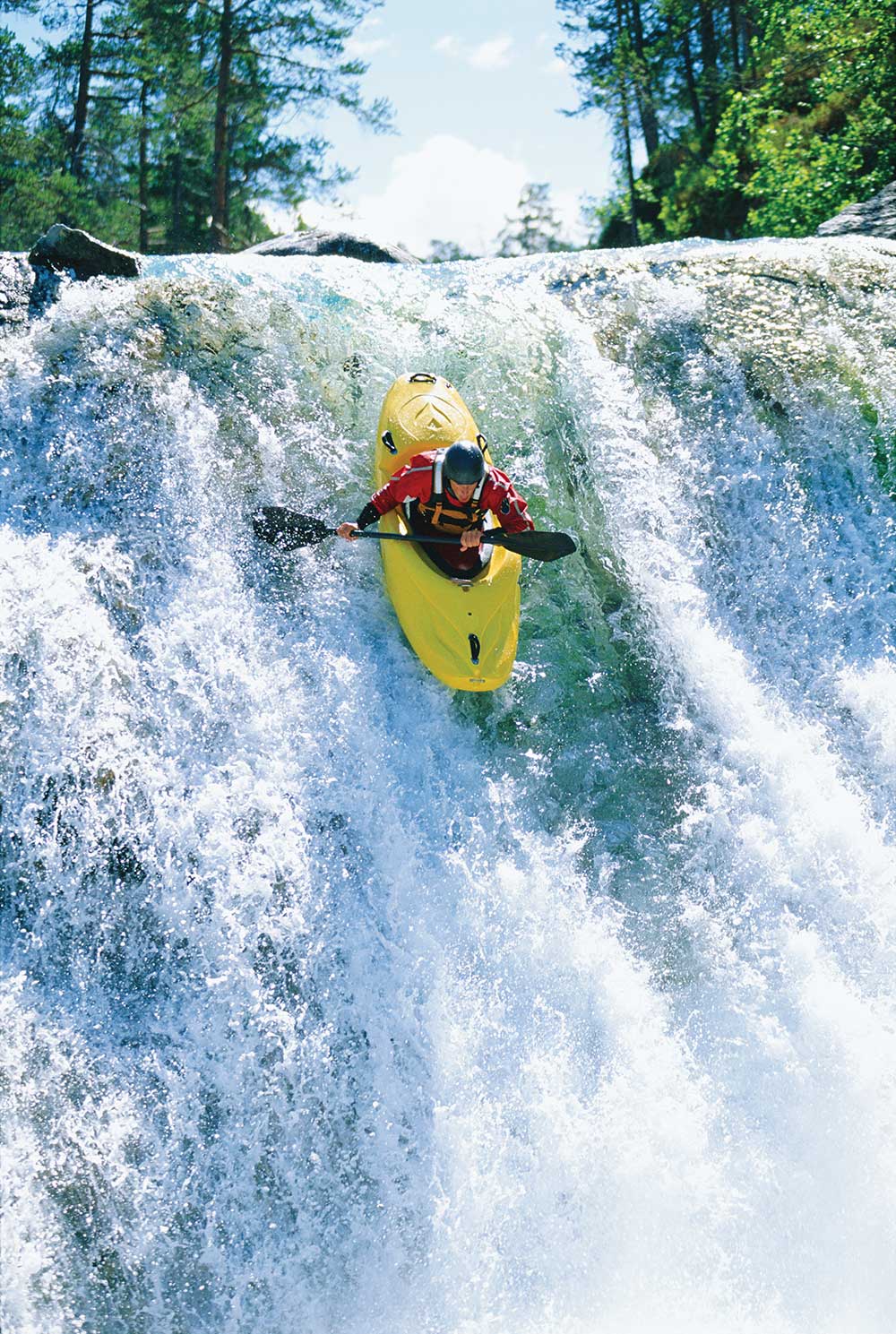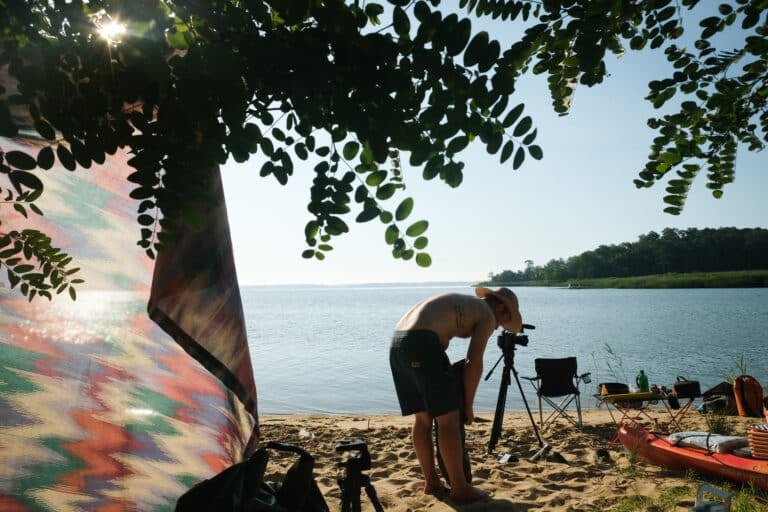Whitewater is best enjoyed by doing it well
Don’t get me wrong: I enjoy a quality aquatic spectacle (beatering). And I’m a firm believer that if you aren’t occasionally making mistakes — on the river or in life — then you probably aren’t trying very hard. But somewhere along the lines, shit kinda got out of hand, and frankly, some of y’all are starting to sketch me out.
Carnage has always been a part of whitewater paddling. It is the inevitable result of humans choosing to challenge themselves amid the forces of nature. Since the inception of the sport, mistakes, experiments, and bad luck have all led to bad swims. It has long been accepted by both beginners and elite level paddlers that we are all “between swims.”
But how and when did those swims become glorified?
On any given day on the river, you’re likely to find at least one person in any group with a Go-Pro strapped to their head. The ubiquity of the personal ‘gnar cam’ coupled with the ‘look at me!’ culture of social media has created a version of reality where people are sharing their own carnage for the sole purpose of getting attention.
And it works.
Post a video of yourself running a rapid well and you’ll get a few likes (as well as that comment from Aunt Martha, who is both amazed and frightened by your fearless “whitewatering.”) But post a heinous video of you getting stuck in a hole and having the swim trunks sucked off your body, and the crowd goes wild!
Suddenly, instead of 43 likes from your high school friends, you’ve got 14 shares, hundreds of “likes” (because, sadly, Facebook doesn’t have an iconographic that quite represents: “Wow, that was sketchy and it’s amazing you’re alive!”), and a slew of comments in each of the paddling groups where it was shared.
Congratulations, your mishap has gotten a lot of attention. Who doesn’t love attention?
This brings us to the rise of beatering.
As the “feel-good” effects of likes and shares on social media have taken root in our neurology and psychology, we are tricking ourselves into thinking that what gets us attention—any and all attention—is cool. We have collectively tricked ourselves and each other into thinking that beatering is cool.
The idea of beatering started as just a label on someone else’s mishaps: “Check out this video—Joe was beatering hard.”
From there, it became a label applied not just to one’s mishaps, but directly to that person: “Joe got trashed at Super Scary Falls again. He’s such a beater!” Or: “Look at me, I beatered hard today.”
Whitewater has a slim margin of error. Mistakes, hubris, bad luck, and/or poor decision making can lead to severe injuries and death. If the ‘beatering is cool’ mentality persists, we are likely to see a parallel increase in both Facebook likes and paddling-related memorial services.
Putting on the river with an “It’s okay to beater” mentality puts everybody around you at risk. When you find yourself teetering on rocks at the mouth of a sieve, your crew is now at risk as they scramble on wet rocks or paddle into sketchy terrain to try to save your ass. I, for one, don’t appreciate that. I, for one, don’t think it’s cool.
To be clear: My issue is not with making mistakes. My issue is with the mentality behind the decisions leading to those mistakes. I’ve made my share of mistakes on the river. I’ve been roped out of some shit. I’ve crashed plenty. On the river, I play around, experiment, and try moves that I’m not sure will work – and sometimes, they don’t.
But there is a difference between approaching whitewater with a “self-growth” mentality versus a “beater” mentality. The former leads to self-knowledge and conscious risk assessment. The latter leads to getting in over your head and the increased likelihood of injury to yourself and others. If you’re constantly pushing your limits while relying on others to pick up the pieces, you are putting both yourself and your crew at risk.
Whitewater is best enjoyed by doing it well. Instead of relying on external stimuli such as likes and shares to feel good about the sport, we should be cultivating our own internal reward system as we grow towards improvement and mastery. As individuals, we should be striving to understand our true motivations, and the ways societal factors (like social media and the desire for attention) can warp our risk assessment.
As members of the paddling community, we should be aware of the effects of rewarding others with our attention. When we see that other members of our community are making poor decisions instead of giving them likes, we can be generous enough to engage them in honest conversation expressing our concerns.
Whitewater is a unique sport in that it is individual- and team-based at the same time. We make our own decisions about putting on, and when it’s time to pull out of the scouting eddy, we are on our own. As a paddler, I highly value the sense of autonomy that comes from being in my own boat. And yet, at each moment, at every stroke, running parallel to that experience is the reality that as soon as something goes wrong, whitewater becomes a team activity. We take responsibility for each other on the river.
As a community, it is no different: Just as we have each other’s backs on the river, off the river we are responsible for how our actions affect one another as well. The reality is that these two things—our on- and off-the-river decisions—cannot be teased apart. Our actions off the river influence the choices made on the water. If we want to encourage and experience safe, sustainable and enjoyable participation in the sport, as members of this community, it is up to each of us to recognize the consequences of our actions and to help shape our culture in a way that keeps our charc in the good flow.








